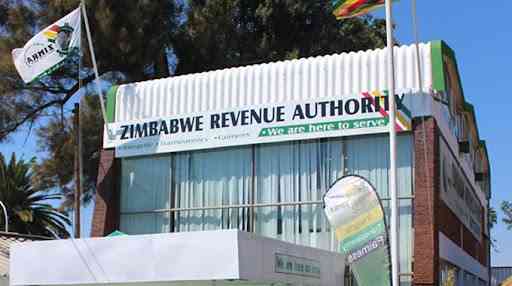
Revenue administrations put the fighting of corruption at the vortex of their strategies. This is due to the vulnerability of tax administration to the vice. Loss of tax revenue has negative impacts on fiscal sustainability, provision of public services and the economy in general.
To its credit, the Zimbabwe Revenue Authority (Zimra) has implemented a myriad of robust measures to fight corruption and underhand dealings.
Some of the strategies include lifestyle audits, the corruption assessment toolkit, prosecution of corrupt officials, forfeiture of assets acquired from proceeds of crime, automation and publicity campaigns, among others.
Its ‘I am for Zero Tolerance’ campaign, for instance, has hit the right chords in terms of execution, communication prowess and dexterity.
Notwithstanding the efficacy of the above-mentioned measures, it is the report carried out in last week’s issue of The Standard that makes sad reading as it comes precisely a year after another such declaration.
Workers at the Zimbabwe Revenue Authority (Zimra) have reportedly declared incapacitation under the auspices of the Zimbabwe Revenue and Allied Workers Trade Union (Zimratu) citing “failure to meet such basic needs as shelter, transport, food and school fees due to low salaries”.
The claims, if they are true, are a major threat to tax revenue and this calls for the nation to spare a thought for these vital cogs in the country’s economic development agenda.
The African Tax Administration Forum (ATAF), to which Zimbabwe is a member, could not have put it across more succinctly: “An appropriately paid tax official will be less likely to take bribes.”
- Zimra seizes CCC campaign vehicle
- Firearms smuggling suspect weeps in court
- Laptops deal rile TIZ
- Eyebrows raised over Zimra tender
Keep Reading
This is further reinforced by Transparency International, which explicated that there are several approaches to curbing corruption in revenue administrations and these include higher salaries, enhancing tax administrations’ autonomy, automation and reducing taxpayer-tax collector interaction.
In the developed world, Georgia provided a classic example in the implementation of reforms that strengthened tax collection by reducing bribery that had become so rampant that it was “easier for businesses and tax authorities to negotiate payments, including the amount to be paid in taxes and the amount to be paid in bribes, unofficially than to try to understand what the tax code actually required” (World Bank, 2012).
After the country had implemented all plausible measures and revenues increased, salaries were raised substantially “further decreasing incentives for bribe” (ibid).
In the same vein, Fjeldstat (2006) studied tax evasion and fiscal corruption in east and southern Africa and found out that poor remuneration in one of the countries of study compared to what the private sector was offering invited corruption.
I do not want the gist of this article to be misconstrued because there is no justification for corruption, as there is none for theft, as it is tantamount to unjust enrichment and the criminal diversion of public resources for private gain.
However, this article argues that, ceteris paribus, mufudzi wemombe haafaniri kupiwa mutuvi (starving the one who tends the dairy cows will put the supply of milk at a grave risk).
Last year, when Zimratu declared incapacitation, the workers made reference to the vital contribution they made to nation building: “… Zimra workers are important to the oiling of the governance machinery for our beloved nation, Zimbabwe, and … they have been constantly and persistently meeting the revenue target every year in real terms as adjusted for inflation…” (NewsHawks, 26 May 2023).
This writer opines that it is incumbent upon revenue administrations across the globe to avoid – to use Malcolm X’s words – ‘by any means necessary’, the creation of near-destitute tax and duty collectors as that poses one of the greatest risks to domestic resource mobilisation initiatives.
Abraham Harold Maslow (1970) intimated that for a person who is extremely and dangerously hungry, no other interests exist but food: “He will dream food, thinks about food, emotes about food, perceives only food, and wants only foods.”
It is not only scary to have hungry tax collectors who fail to meet basic physiological needs but it is also as oxymoronic as water that is not wet!
There is need, therefore, for revenue administrations to augment their anti-corruption drives with modest remuneration and incentives.
Fjeldstat (2005) aptly summed it up as follows: “Wage-based policies are unlikely to have an impact on corruption without effective monitoring systems as well as enforcement of sanctions.”
Although the nexus between corruption and the level of remuneration in revenue administrations is a potential area for further academic research, it doesn’t need a rocket scientist to fathom that, all things being equal, the propensity to take bribes and/or susceptibility to corrupt tendencies increases exponentially with the shallowness of the pocket.
It is, thus, this writer’s submission that revenue administrations have a fiduciary duty to put staff welfare at the epicentre of their strategic thrust, not only for the sake of safeguarding tax revenue but also to enhance taxpayer-tax collector interfaces.
It is axiomatic that a satisfied and engaged employee translates to, ceteris paribus, a delighted customer.
As long as the tax collector is contemplating where to get his or her next meal or money for rent, client satisfaction becomes elusive, a daunting chimera or even a pipedream!
From a moral and ethical perspective, the United Nations’ Sustainable Development Goal Number 1 aside, this article wraps up by quoting from the Holy Book. 1 Timothy 5:18 reads: “For the Scripture says, ‘Do not muzzle an ox while it is treading out the grain,’ and ‘The worker deserves his wages’” (New International Version).
In a nutshell, revenue administrations’ fight against corruption and the underground market could be catalysed by combining strategies such as use of technology, lifestyle audits, law enforcement, information dissemination and naming and shaming with modest remuneration.
- Canisio Mudzimu is a freelance writer, tax and customs strategist, climate change activist and socio-political commentator. He can be contacted at canisiomudzimu@gmail.com









